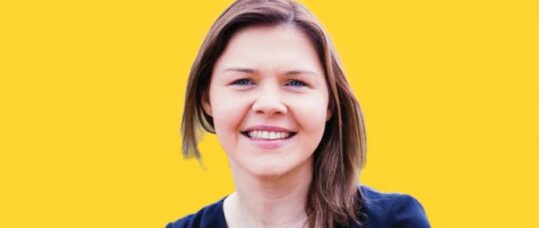It’s time to address the emotions of eating

Did you know that hunger is only one of over 30 reasons why we eat? Yet traditional weight management approaches tend to assume we eat when we are hungry and stop when we are full.
Dietary advice focuses on telling us what we should be eating, and how much, but rarely addresses the question of why – stress, boredom, reward, tiredness and so on.
I’m a clinical psychologist specialising in diabetes and obesity and also a recovered emotional eater. I struggled for years, feeling unable to talk about my ‘non-hunger’ eating to health professionals. I knew very well what I ‘should’ have been eating – but I couldn’t stop myself eating if I’d had a bad day, or wanted to reward or comfort myself. I was confused. I had motivation and discipline in other areas of life, but not when it came to food. What I didn’t realise then was that I needed to take a different approach. I needed to develop psychological skills.
Related Article: Diagnosis Connect service will link people to advice from charities
Research indicates that non-hunger eating may be a key reason why weight management advice fails to be implemented in the long term. Practice and community nurses may be in a good position to identify and provide signposting. Here are two brief screening questions:
- Do you eat for reasons other than hunger? For example, due to stress, to reward yourself, manage your mood, distract yourself, because you’re bored or lonely?
- Do your eating habits change according to your emotions, events in your day or the behaviour of others?
If the answer to at least one of these is ‘yes’, the person might be interested in developing new skills.
The topic of overeating can hold a lot of shame, so the key message is that there is nothing wrong or bad about using food to deal with non-hunger problems. In our food-abundant environments, most of us of all shapes and sizes are guilty of this – including health professionals. The challenge is that many of us grew up in generations where food wasn’t so available. We were taught to finish our plates and ‘think of the starving children’. Eating nice food really was a treat, whereas now it is a daily occurrence. Food may have been offered as a coping strategy by caregivers who struggled to interpret what was really needed.
Many people haven’t had the opportunity to apply their skills of willpower and motivation to the area of food and move beyond the food-as-reward paradigm that may be embedded in the family.
While there are many important and complex theories about the concept of motivation, it is actually pretty simple. We are highly motivated to do exactly the right thing for us as individuals, given two parts of ourselves:
Related Article: ‘Patients not prisoners’: Palliative care nursing behind bars
- The knowledge and information about the pros and cons of a particular behaviour – the educational part of the jigsaw, which traditional advice focuses on.
- Our inner worlds – emotions, values, sense of self-worth and cultural narratives connected to food and eating (or our ‘eating story’).
Yet this second part is the aspect that most weight loss programmes don’t address. An eating story describes the non-hunger reasons why a person eats or maintains a big body size that serves an important function for them. Eating stories are usually unvoiced and often unrecognised. They mean a person may be unconsciously motivated to eat or stay big, even when they are consciously motivated to want to eat less or lose weight.
This deeper side to the eating and weight loss journey is often the key reason why a person struggles to implement dietary advice. It’s because they are eating and maintaining a big body for very important reasons. And until they’ve been shown to recognise these, acknowledge and transform them, nothing permanently changes in the long term.
|
Dr. Jen Nash is a clinical psychologist, chartered with the British Psychological Society. She is a board member of the National Obesity Forum, a trustee of Diabetics With Eating Disorders charity and a member of the editorial boards of the Journal of Diabetes Nursing and the British Journal of Obesity Related Article: New film spotlights health visitor role in supporting fathers’ mental health Jen has been living with type 1 diabetes since childhood and is the founder of ‘Positive Diabetes’ and ‘The Eating Blueprint’ educational services |

See how our symptom tool can help you make better sense of patient presentations
Click here to search a symptom


How practice nurses can advise patients on emotional eating, and teach them how to break the habit.



